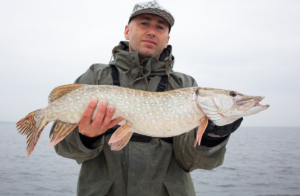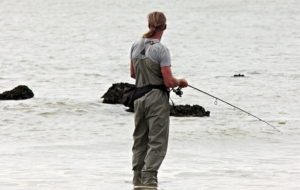
Essential Tips for More Sustainable Recreational FishingEssential Tips for More Sustainable Recreational Fishing
Sustainable recreational fishing is essential for ensuring that future generations can enjoy the sport of fishing. Protecting the natural resources we rely on for our hobby is also necessary. This blog post will discuss some tips for sustainable recreational fishing. We hope these tips help you have a more enjoyable and environmentally-friendly fishing experience. In addition, you can read more on fishing license rules and avoid state law violations that may attract hefty penalties.
Practice Catch and Release
 One of the best ways to ensure sustainable recreational fishing is to practice catch and release. This means releasing any fish you have caught after taking a picture or measuring its length. Releasing fish allows them to continue breeding and contributing to local ecosystems while preventing overfishing in certain areas. Also, remember to handle the fish while catching and releasing correctly, as this will help ensure its survival.
One of the best ways to ensure sustainable recreational fishing is to practice catch and release. This means releasing any fish you have caught after taking a picture or measuring its length. Releasing fish allows them to continue breeding and contributing to local ecosystems while preventing overfishing in certain areas. Also, remember to handle the fish while catching and releasing correctly, as this will help ensure its survival.
Use the Right Gear and Bait
If you want to practice sustainable recreational fishing, it’s important to use the right equipment. Make sure you are using hooks and lines appropriate for the type of fish you’re targeting. Additionally, be aware of what kind of bait you’re using. Some types of appeal can be damaging to local ecosystems if not used responsibly. For instance, live bait can introduce non-native species into the water.
Be Aware of Local Regulations

Being aware of local fishing regulations is essential for sustainable recreational fishing. Many areas have limits on the size and number of fish that can be taken, as well as specific times throughout the year in which certain species may not be fished. Familiarizing yourself with these rules and regulations will help ensure that the recreational fishing you’re doing is legal and sustainable. Plus, it’ll help you avoid fines and other consequences of breaking the law.
Practice Responsible Stewardship
 Finally, practicing responsible stewardship is important when engaging in recreational fishing activities. This means being aware of your impact on the local environment, such as not leaving any trash behind or damaging habitats by fishing too close to them. It also means respecting other anglers so that everyone can enjoy the fishing experience without interference or disruption.
Finally, practicing responsible stewardship is important when engaging in recreational fishing activities. This means being aware of your impact on the local environment, such as not leaving any trash behind or damaging habitats by fishing too close to them. It also means respecting other anglers so that everyone can enjoy the fishing experience without interference or disruption.
Recreational fishing is a great way to enjoy the outdoors and connect with nature. By following these tips for sustainable recreational fishing, you can help ensure that future generations can continue this hobby. Make sure to practice catch and release, use the right gear and bait, be aware of local regulations, and practice responsible stewardship whenever you go fishing. Doing so will help ensure that we can all enjoy this sport for years to come.…